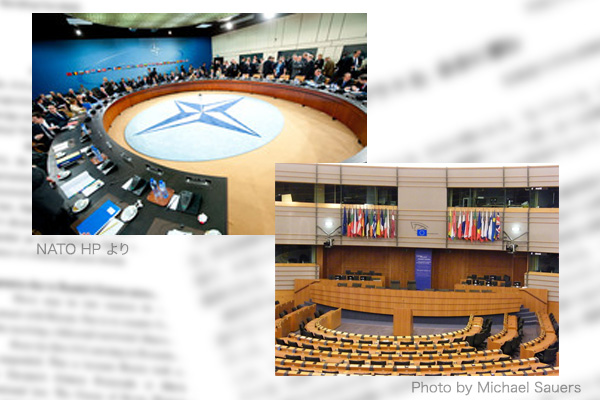Andrew Small, a senior fellow at the German Marshall Fund of the United States, has praised the European Union for being united against China’s economic offensive in Europe at its summit meeting on March 22. This may be a minority view. Robert Kagan, a neoconservative American historian, has described European weakness and division as “a strategic decoupling from the United States,” “the fraying of the European Union” and “the end of Europe.” European decline is now clear to anyone.
“The United Kingdom Has Gone Mad”
The European Commission, the EU executive organ, has revised its eurozone economic growth projection downward from 1.9% to 1.3% for 2019. Nominal gross domestic product contracted from 2009 to 2017 in the eurozone while growing 139% in China, 96% in India and 34% in the U.S.
What is the United Kingdom doing after dealing the biggest political blow to the EU by deciding to exit from the union? Although the Brexit had been scheduled for March 29, British Parliament voted down Brexit proposals three times, forcing the Brexit date to be delayed until April 12.
New York Times columnist Thomas Friedman ironically described the U.K. as a country that’s determined to commit economic suicide but can’t agree on how to kill itself, calling the stalemate an epic failure of political leadership. The U.K., which created modern parliamentary democracy, modern banking and finance, the Industrial Revolution and the whole concept of globalization, “has gone mad,” he said.
Germany brushing off NATO defense spending accord
North Atlantic Treaty Organization member countries have agreed to spend at least 2% of GDP on defense. While U.S. President Donald Trump has criticized Germany for failing to abide by the accord, the German cabinet has decided to limit defense spending to 1.25% of GDP in 2023.
At an event to mark the 70th anniversary of NATO in Washington on April 3, U.S. Vice President Mike Pence criticized Germany’s reluctance to share its defense burden. It may be natural that the raison d'etre of NATO created mainly to counter Soviet threats is being called into question.
Populist parties growing in such European countries as Germany, France, Italy and the U.K. are also transforming the characteristics of Europe. Poland and Hungary in Eastern Europe have failed to keep in step with Western Europe, while Southern Europe including Italy and Spain is still plagued with the European debt crisis. Where has Europe gone that had been united to rival the U.S., China and Russia?
Tadae Takubo is Vice President of Japan Institute for National Fundamentals and a professor emeritus at Kyorin University.


